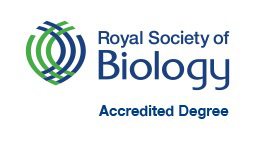Animal Behaviour Code C120 Attend an Open Day Attend an Open Day
Apply NowKey Facts
C120-
UCAS Tariff
120 - 104
-
Course duration
3 years
Available for September start 2026
Further details on entry requirements
Apply NowAnimal behaviourists apply their scientific skills to understand how and why animals behave in the ways that they do, in order to improve animal welfare, enhance conservation, and further our knowledge of the natural world. On the BSc Animal Behaviour degree at Aberystwyth University you will develop a solid foundation of transferable scientific skills, as evidenced by our Royal Society of Biology accreditation.
Equipped with these skills, you will investigate the mechanisms, development, function, and evolution of animal behaviour in a range of pure and applied contexts. You will develop advanced skills in animal behaviour research and ultimately conduct your own independent behaviour research project.
You’ll do all this within the wild and beautiful setting of West Wales, which is home to bottlenose dolphins, Atlantic grey seals, pine martens, otters, ospreys and red kites. In addition, you’ll have the opportunity to intensively investigate animal behaviour on residential field courses further afield.
Course Overview
Modules September start - 2026
Please note: The modules listed below are those currently intended for delivery during the next academic year and may be subject to change. They are included here to give an indication of how the course is structured.
| Module Name | Module Code | Credit Value |
|---|---|---|
| Animal Health and Management | BR19720 | 20 |
| Cell Biology * | BR17520 | 20 |
| Comparative Animal Physiology | BR16720 | 20 |
| Disease Diagnosis and Control | BR15420 | 20 |
| Ecology and Conservation * | BR19320 | 20 |
| Genetics, Evolution and Diversity | BR17120 | 20 |
| Skills for Wildlife Scientists * | BR15720 | 20 |
| Module Name | Module Code | Credit Value |
|---|---|---|
| Animal Behaviour | BR21620 | 20 |
| Research Methods * | BR27520 | 20 |
| Researching Behavioural Ecology | BR27320 | 20 |
| Vertebrate Zoology | BR26820 | 20 |
| Veterinary Health | BR27120 | 20 |
Options
| Module Name | Module Code | Credit Value |
|---|---|---|
| Introduction to Geographic Information Systems and Landscape Ecology | BR25520 | 20 |
| Invertebrate Zoology | BR25420 | 20 |
| Nursing of Exotics | BR29720 | 20 |
| Nursing of Large Animals | BR29820 | 20 |
| Tropical Zoology Field Course | BR23820 | 20 |
| Module Name | Module Code | Credit Value |
|---|---|---|
| Behaviour and Welfare of Domesticated Animals | BR35120 | 20 |
| Research Project * | BR36440 | 40 |
Options
| Module Name | Module Code | Credit Value |
|---|---|---|
| Advances in Agriculture | BR39920 | 20 |
| Animal Behaviour Field Course | BR34920 | 20 |
| Behavioural Neurobiology | BR35320 | 20 |
| Global Biodiversity Conservation | BR33420 | 20 |
| Parasitology | BR33820 | 20 |
| Population and Community Ecology | BR33920 | 20 |
| Primatology | BR38820 | 20 |
| Veterinary Pharmacology and Disease Control | BR36820 | 20 |
| Wildlife Conservation | BR34520 | 20 |
* Also available partially or entirely through the medium of Welsh
Careers
Teaching & Learning
Student Testimonials
Typical Entry Requirements
UCAS Tariff 120 - 104
A Levels BBB-BCC with B in Biology
GCSE requirements (minimum grade C/4):
English or Welsh, Science and Mathematics
BTEC National Diploma:
DDD-DDM in a specified subject
International Baccalaureate:
30-28 with 5 points in Biology at Higher Level
European Baccalaureate:
75%-65% overall with 7 in Biology
English Language Requirements:
See our Undergraduate English Language Requirements for this course. Pre-sessional English Programmes are also available for students who do not meet our English Language Requirements.
Country Specific Entry Requirements:
International students whose qualification is not listed on this page, can check our Country Specific Entry Requirements for further information.
The University welcomes undergraduate applications from students studying the Access to Higher Education Diploma or T-level qualifications, provided that relevant subject content and learning outcomes are met. We are not able to accept Access to Higher Education Diplomas or T-levels as a general qualification for every undergraduate degree course.
Our inclusive admissions policy values breadth as well as depth of study. Applicants are selected on their own individual merits and offers can vary. If you would like to check the eligibility of your qualifications before submitting an application, please contact the Undergraduate Admissions Office for advice and guidance.

